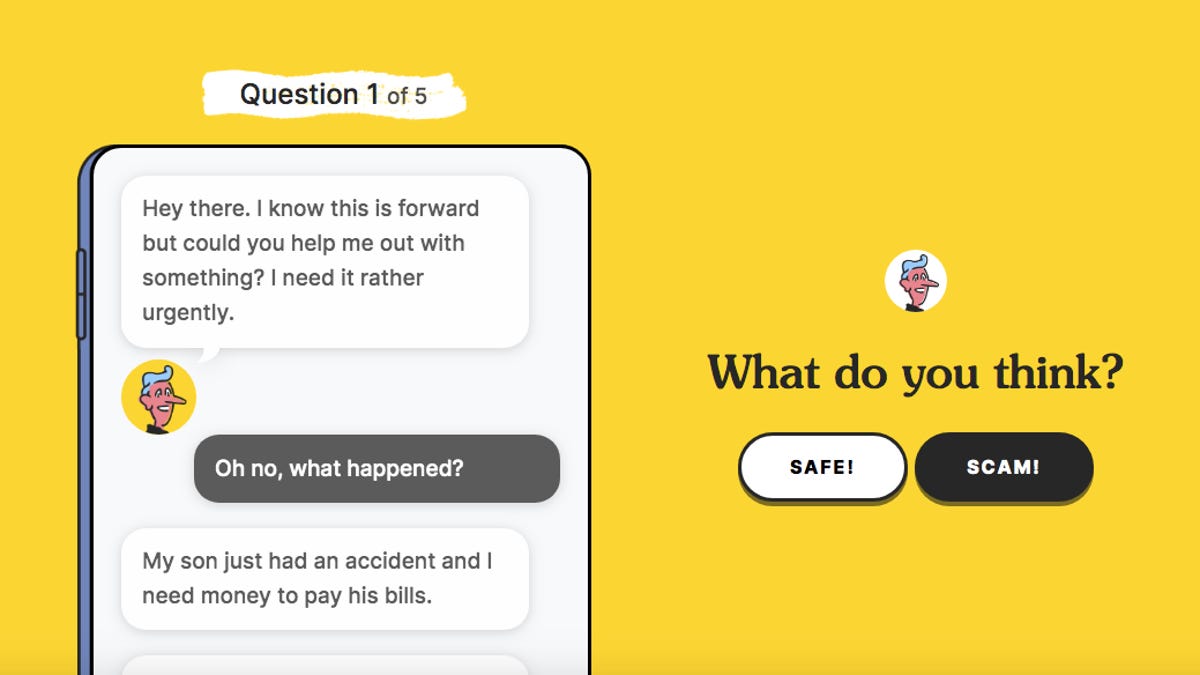Google launches website to help people avoid online scams
Scammers have exploited the coronavirus pandemic with "alarming speed," the search giant says.

The website was launched by Google and the Cybercrime Support Network.
Google on Thursday unveiled a website aimed at teaching people how to spot and avoid online scams, as digital hoaxes hit an uptick amid the coronavirus pandemic.
The website, Scamspotter.org, tries to show people how to identify things such as bogus stimulus checks, fake vaccine offers, or other false medical information. The site also highlights certain patterns that are typical of hoaxes, like a romance scammer asking a target to wire them money or buy them a gift card.
Google launched the tool in partnership with the Cybercrime Support Network, a nonprofit focused on helping victims of online fraud. The website includes a quiz that runs through common scam scenarios, like getting a message about winning a trip to Hawaii, even if the recipient didn't enter a contest.
The effort comes as scammers have exploited the pandemic with "alarming speed," Google said. Americans have lost more than $40 million because of COVID-19-related scams, according to the Federal Trade Commission. The agency projects more than $2 billion will be lost due to scams across the board this year, coronavirus-related or otherwise.
Earlier this month, the FTC warned the public about text message scams related to contact tracing, a public health method of tracking the spread of a virus. The scams ask for personal information such as a Social Security number, bank account or credit card number. (Google and Apple have released their own tools for contact tracing, though they are supported by apps built by public health agencies.)
The website is especially geared at educating seniors, who disproportionately lose more money than other demographics because of scams, Google said. The company urged young people to share the information from the website with the elderly people in their lives.
"It will take a cross-generational effort," Vint Cerf, a pioneer in the development of the internet, as well as a Google vice president, said in a blog post. "If we learn how to spot the bad actors, we can spend our time focusing on those moments that matter."
Cerf, who is 76, said seniors should feel like they can use the internet comfortably, because "we invented" it.

